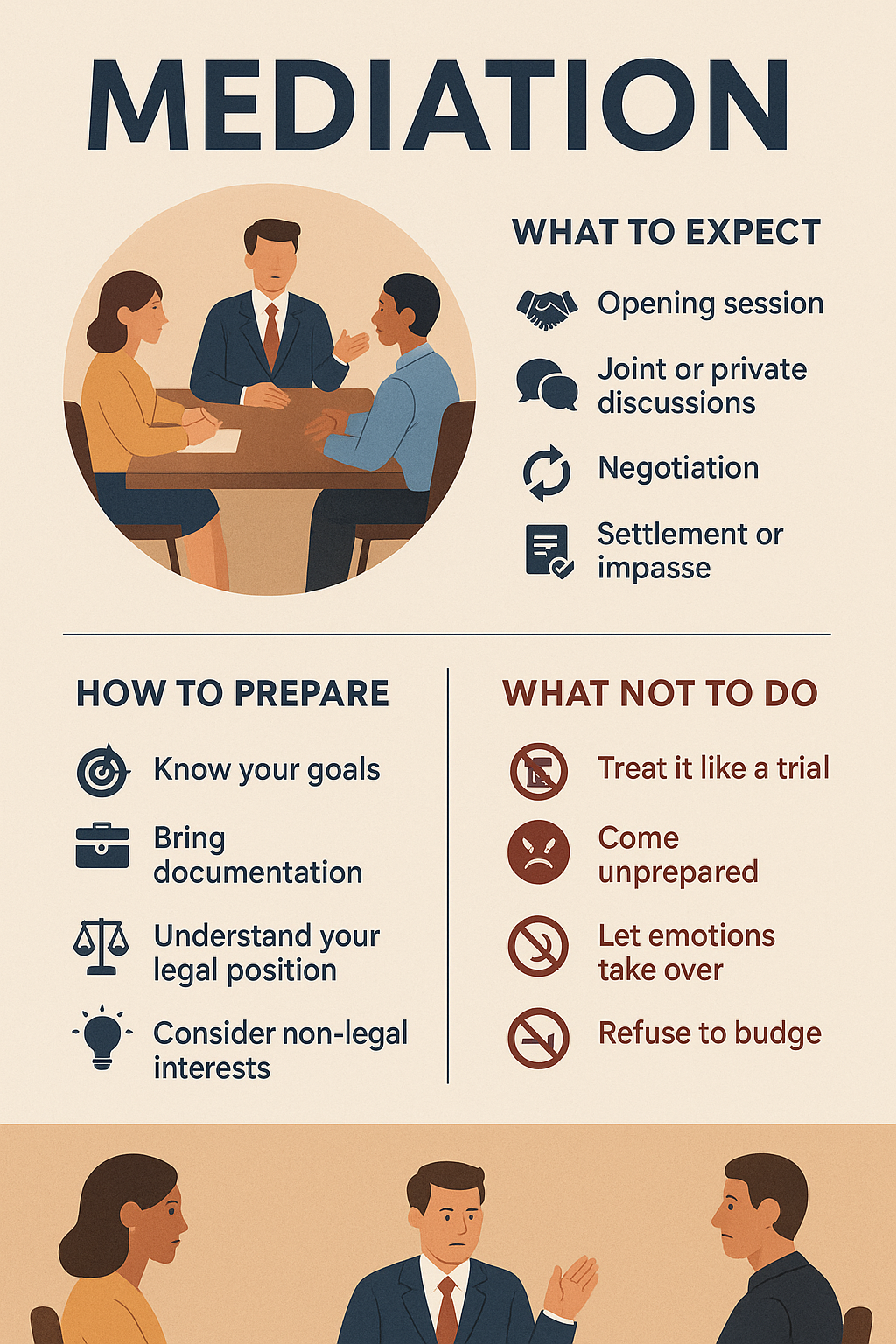
Mediation has become one of the most effective tools for resolving legal disputes—whether in family law, real estate, business, or construction. It provides a structured setting where the parties, guided by a neutral third party (the mediator), attempt to reach a mutually acceptable resolution without the time, expense, and stress of a trial.
What Mediation Is (and What It’s Not)
Mediation is:
- Confidential. What is said in mediation generally cannot be used later in court. This creates a safe environment for open discussion.
- Voluntary in spirit. While sometimes ordered by a court, the outcome depends on the willingness of the parties to reach an agreement.
- Facilitated, not decided. The mediator does not act as a judge or arbitrator. They don’t make rulings—they help the parties communicate, identify issues, and brainstorm solutions.
- Flexible. Unlike rigid court procedures, mediation allows creative solutions tailored to the parties’ needs.
Mediation is not:
- A “mini-trial” where evidence is formally presented and decided.
- Binding unless and until the parties sign a settlement agreement.
- A guarantee of settlement—though success rates are high.
What to Expect in the Process
A typical mediation follows this general pattern:
- Opening session. The mediator explains the process and ground rules. Each side may give a brief statement of their perspective.
- Joint or private discussions. The mediator may meet with both parties together or in separate “caucuses” to explore issues and settlement options.
- Negotiation. Offers and counteroffers are exchanged, often with the mediator shuttling between rooms.
- Settlement or impasse. If the parties reach agreement, it is put in writing and signed. If not, the case proceeds toward trial.
How to Prepare for Mediation
Preparation is key to getting the most out of mediation. A few practical steps include:
- Know your goals. What do you absolutely need, and what are you willing to compromise on?
- Bring documentation. Have contracts, correspondence, financial records, or other key materials organized and ready.
- Understand your legal position. Review the strengths and weaknesses of your case with your attorney so you have realistic expectations.
- Consider non-legal interests. Sometimes the solution may involve timing, confidentiality, or creative business arrangements that a court judgment couldn’t provide.
What Not to Do
Equally important is knowing the pitfalls to avoid:
- Don’t treat it like a trial. Mediation is about resolution, not winning arguments.
- Don’t come unprepared. Arriving without documents, numbers, or a clear idea of your position can weaken your credibility.
- Don’t let emotions take over. While disputes often carry strong feelings, anger or hostility can derail the process.
- Don’t refuse to budge. Mediation is about compromise—an “all or nothing” stance usually ensures nothing gets resolved.
Final Thoughts
Mediation offers an opportunity to control the outcome of your dispute, save time and money, and move forward with certainty. With the right preparation and mindset, it can be one of the most effective tools in modern legal practice.
At David C. Barsalou, Attorney at Law, PLLC, we help clients navigate business, family, tax, estate planning, and real estate matters ranging from document drafting to litigation with clarity and confidence. If you’d like guidance on your situation, schedule a consultation today. Call us at (713) 397-4678, email barsalou.law@gmail.com, or reach us through our Contact Page. We’re here to help you take the next step.